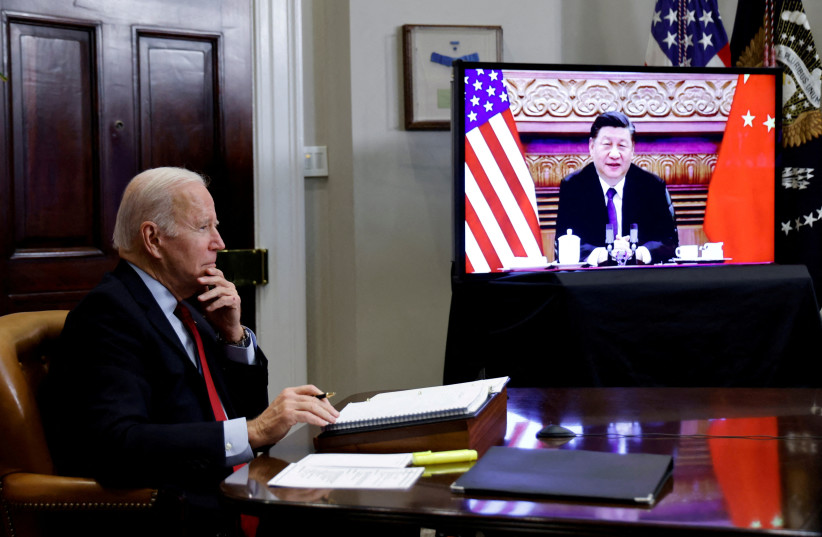US President Joe Biden and Chinese President Xi Jinping held a fifth call as leaders on Thursday, and Xi warned against "playing with fire" over Taiwan, as concerns mounted over a possible visit to Chinese-claimed island by US House Speaker Nancy Pelosi.
Chinese state media said Xi told Biden that the United States should abide by the "one-China principle" and stressed that China firmly opposed Taiwanese independence and interference of external forces.
"This is about keeping the lines of communication open with the president of China, one of the most consequential bilateral relationships that we have, not just in that region, but around the world, because it touches so much,"
White House national security spokesman John Kirby
Beijing has issued escalating warnings about repercussions should Pelosi - a Democrat like Biden - visit Taiwan, a move that would be a dramatic, though not unprecedented, show of US support for the island, which says it is facing increasing Chinese military and economic threats.
"Those who play with fire will only get burnt," Chinese state media quote Xi as telling Biden. "(We) hope the US side can see this clearly."

The White House said the call lasted over two hours. US officials had said it would have a broad agenda, including discussion of Russia's invasion of Ukraine, which China has yet to condemn.
At its core though, US officials said they saw the exchange as another chance to manage competition between the world's two largest economies, whose ties have been increasingly clouded by tensions over democratically governed Taiwan, which Xi has vowed to reunite with the mainland, by force if necessary.
Washington does not have official relations with Taiwan and follows a "one-China policy" that recognizes Beijing, not Taipei, diplomatically. But it is obliged by US law to provide the island with the means to defend itself, and pressure has been mounting in Congress for more explicit support.
"This is about keeping the lines of communication open with the president of China, one of the most consequential bilateral relationships that we have, not just in that region, but around the world, because it touches so much," White House national security spokesman John Kirby told reporters ahead of the call.
One person briefed on planning for the call said the Biden administration thinks leader-to-leader engagement is the best way to lower tensions over Taiwan.
Some analysts believe Xi also has an interest in avoiding escalation as he seeks an unprecedented third term in office at a congress of China's ruling Communist Party expected in the fall.
Biden also wanted to discuss climate and economic competition issues, the person briefed said, as well as the idea of placing a price cap on Russian oil to punish Moscow for its war in Ukraine, an issue Treasury Secretary Janet Yellen raised with Chinese counterparts earlier in July.
The Biden administration has been debating whether to lift some tariffs on Chinese goods as a way to ease soaring inflation, but US officials have said a decision was not expected ahead of the call.
When Biden last spoke to Xi in March, he warned of "consequences" if Beijing gave material support for Russia's war, and the US government believes that that red line has not been crossed in the months since.
Taiwan has complained of stepped-up Chinese military maneuvers over the past two years to try and force it to accept Beijing's sovereignty. Just ahead of Thursday's call, Taiwan's military said it fired flares to warn away a drone that "glanced by" a strategically located and heavily fortified island close to the Chinese coast that was possibly probing its defenses.
Toxic ties
The White House has reiterated that its "one-China" policy has not changed despite speculation over a possible trip by Pelosi, which the speaker has yet to confirm.
The last time a speaker of the US House visited Taiwan was in 1997, and as a co-equal branch of government, the US executive has little control over congressional travel.
China has grown more powerful militarily and economically since, and some analysts worry such a visit at a time of fraught ties, could spur a crisis across the 100-mile (160-km) wide Taiwan Strait waterway separating China and Taiwan.
Kirby said the administration has been in touch with Pelosi's office to make sure she has "all the context" she needs to make decisions about her travel.
China has given few clues to specific responses it might take if Pelosi, a long time critic of China, particularly on human rights issues, does go to Taiwan.
